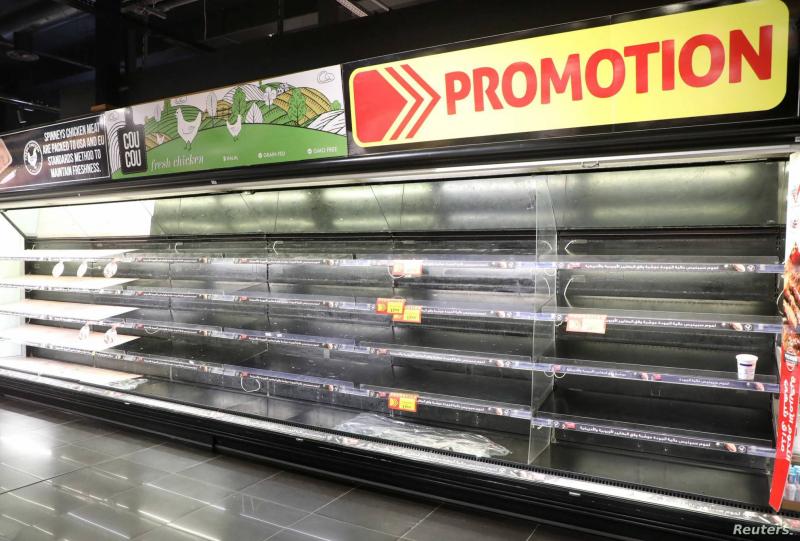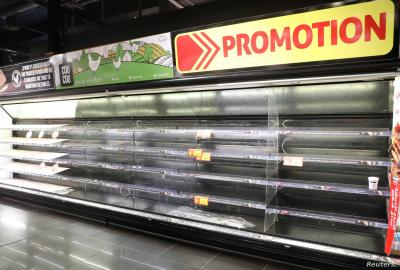The newspaper "Anbaa" reports: The repercussions of the Russian-Ukrainian war are increasingly worsening, as many global economies begin to feel the direct impact. The rise in oil prices has caused a fuel crisis in several countries that are witnessing shortages of fuel, particularly gasoline, with some reaching record high prices. Lebanon, which is immersed in the worst crisis in its modern history, is more affected by these repercussions that will threaten its food security and other aspects of daily life.
Due to the limitless greed among a majority of Lebanese traders and the state's inability to monitor the markets, large distributors and many supermarkets have rushed to hoard essential goods, such as oil, sugar, flour, and some imported food items. The war's impact has prompted the Cabinet to form a ministerial emergency committee to address food security. Government sources indicated via "Anbaa" electronic that "the committee's mission is to find an alternative to the Ukrainian market for importing essential goods, particularly wheat, which is a priority, considering that Lebanon imports more than 50% of its wheat needs, along with oil, sugar, and most food commodities." The committee is keen to import these goods at the same cost that Lebanon paid to Ukraine, with contracts expected to be signed soon to avert a crisis, especially regarding wheat and flour, which are expected to see increased imports from Australia and other countries.
Regarding the shortage of gasoline and diesel, sources emphasized that there is no fuel crisis because the tankers in the sea are set to start unloading their cargoes starting today and tomorrow, thus ensuring the availability of gasoline and diesel.
George Brax, a member of the fuel distributors' union, confirmed in a call with Anbaa electronic that there is no fuel crisis at all. However, he did not deny the existence of a global crisis, which is natural due to the war and the involvement of several countries, but this does not mean that gasoline is unavailable. Companies have not stopped importing and are working as usual to meet market needs. He attributed the confusion at the stations to citizens rushing, believing that gasoline would run out, as had happened in the past, and he expects significant relief in the next 48 hours.
As for prices, it is the jurisdiction of the Ministry of Energy, which estimated to Anbaa electronic that the price of a gasoline canister could reach 425,000 Lebanese pounds.
In relation to the parliamentary elections, preparations are intensifying. Nominations are pouring in, and communications are intensifying to finalize the electoral lists, while election machinery has begun to work diligently in preparation for May 15. In this context, the words of the head of the Democratic Gathering, MP Taymour Jumblatt, during the launch of the Youth Work Committee stood out, characterized by honesty, realism, and determination to work. He addressed the youth saying: "In the upcoming period, you will hear many slogans, big titles, and fanciful promises, as it is an election period. But my message is simple and clear; mistakes may have occurred in some areas, but our message and daily work aim to support people to endure and remain in their land." He confirmed that "we have one goal, to support people, even with limited resources... Our primary objective has always been to support individuals."
On another note, regarding the budget, sources from the Finance and Budget Committee indicated that the committee will resume its meetings this week to study several items, which are complex and precise. They noted in a conversation with Anbaa electronic that there is a possibility to finalize it before the elections if nothing arises to delay the committee's work, avoiding the need for amendments that would prolong its study and delay its referral to the general assembly for discussion and approval, which could also take time. Unless there is a genuine desire from current MPs to vote on it before the elections.




